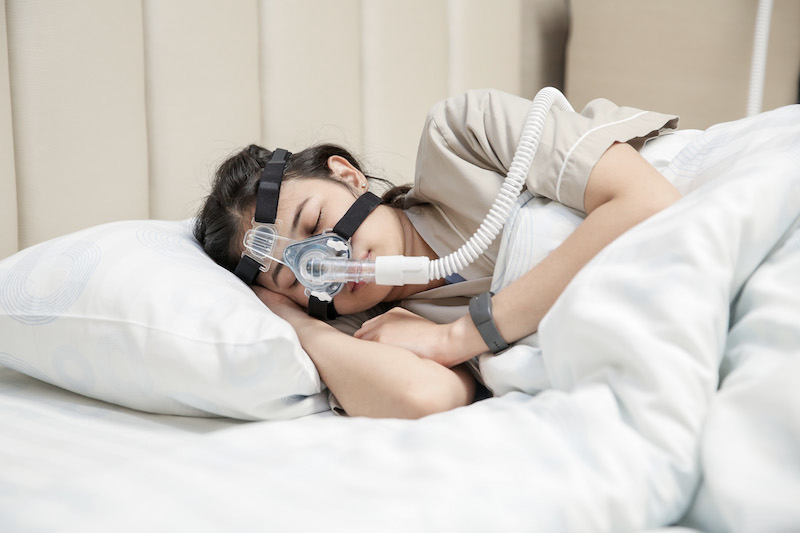Currently, the number of sleep disorder diagnoses, including restless sleep, snoring, abnormal breathing during sleep, and unexplained sleeping spells have increased. In 1 year, there were 400 – 500 patients consulting doctors for these issues. Conditions such as snoring, sleep apnea, excessive sleepiness, and epilepsy, as well as stress, all originate in the brain and lead to memory degradation.
The number of patients experiencing brain abnormalities has increased, and diseases related to sleep have shown a continuous upward trend. Among patients with issues like snoring, abnormal breathing, deep sleep, sleeping excessively, or sleeping throughout day and night, lasting for 3 – 4 days, there are significant impacts on current life, causing the body to feel unrefreshed due to insufficient rest, which may cause accidents.
The most common brain disorder is epilepsy, which presents in the form of convulsions, twitching, absent-mindedness, involuntary body movements, and loss of self-control, occurring both during sleep and while awake. This happens because the brain generates electrical waves that interfere with overall brain function.
The cause originates in the brain, such as congenital brain abnormalities, brain accidents, or injuries from other physical illnesses. The cause of brain dysfunction may not show physical symptoms but may be genetic. Thus, finding the cause for targeted treatment can effectively correct the abnormalities in the brain. Frequent seizures can reduce cognitive performance, intelligence, memory, and learning ability. Currently, many patients suffer from latent epilepsy, temporarily losing memory without showing symptoms. This is more common in patients with chronic diseases such as diabetes, high blood pressure, and aging, including congenital brain disorders or brain atrophy.
Patients may start feeling depressed, confused, and distracted. Proper treatment can help restore the patient’s memory. Impacts from abnormal brain electrical waves can be life-threatening if seizures continue over a long period. Therefore, treatment must start by finding the origin of the seizures in the brain (Epileptogenic Zone) and its cause, for accurate treatment, such as taking anticonvulsants, surgery, or using certain technological devices to reduce the chances of seizures. Continuous seizures over a long time can interfere with overall brain functions, causing them to work abnormally.

Treatment must diagnose the location of seizures in the brain, using brain function tests with Routine EEG or Video – EEG monitoring, brain X-rays, studying brain structure with MRI/CT, examining brain function abnormalities with PET SCAN, SPECTs, and using technology such as combining EEG and fMRI machines to locate seizure origins, increasing the chance of a successful brain surgery. Modern technology allows for precise disease diagnosis, and Bangkok International Hospital offers both Sleep and Epilepsy Centers with 4 sleep test rooms, 4 epilepsy test rooms, a control room, and sleep technicians providing 24-hour care.
The Sleep Center focuses on sleep health examinations to analyze the function of various body systems during sleep, such as the respiratory system, blood oxygen levels, brain electrical waves, heart electrical waves, and muscles, as well as studying behaviors occurring during sleep. This test is suitable for patients with sleep disorders, snoring, excessive sleepiness, abnormal breathing, including conditions such as sleepwalking or involuntary movements during sleep. In some patients, symptoms include bulging eyes, teeth grinding, face twitching, and convulsions during sleep, etc.
In addition, there is a Sleep lab service for overnight sleep study (Night Sleep Lab) and daytime dark room testing (Day time sleep lab), with sleep technicians to monitor patients and adjust CPAP machine pressure throughout 24 hours, etc. Actigraphy is used to assess sleep and wake periods, a special device similar to a watch worn on the patient’s wrist, allowing tracking of sleep behavior during both day and night, which is then analyzed by a sleep specialist.

